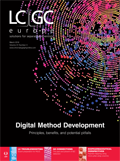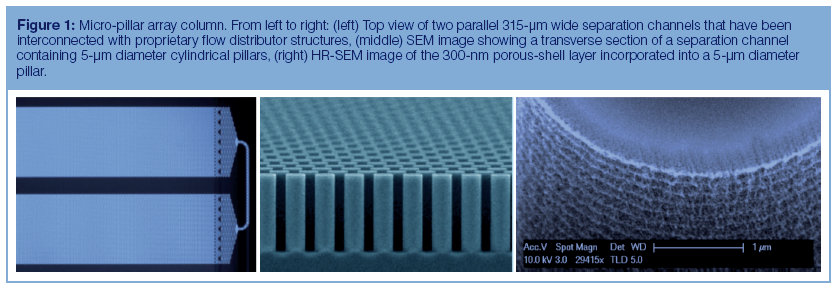Analytica 2018
Analytica will take place from 10–13 April 2018 at the Messe München, in Munich, Germany. The Analytica conference is a highlight of Analytica and will take place at the International Congress Center (ICM) from 10–12 April 2018.
Analytica will take place from 10–13 April 2018 at the Messe München, in Munich, Germany. The Analytica conference is a highlight of Analytica and will take place at the International Congress Center (ICM) from 10–12 April 2018.
The Analytica conference covers cuttingâedge research and applications using modern chemical and bioanalytical technologies. The increasing digitization in the laboratory and the handling of the flood of results are a major focus this year. What does having to process thousands of samples every hour mean for laboratory management? How can this flood of data be reliably evaluated and managed?
There are full-day symposia on chromatography and spectroscopy, and new developments in instrumental analytics remain at the core of the Analytica conference. In biosciences, “multi-omics” will be covered in detail. Cutting-edge techniques for the analysis of proteomes, genomes, and metabolomes will also be a focus in the conference sessions. The session “Big Data Tools for Omics”, chaired by systems biologist Lennart Martens from the University of Ghent (Belguim), offers insights into data handling for “omics” applications, and a series of lectures on microbiome analytics will focus on big data and bioinformatics.
“Trends in Analytical Toxicology” will be of interest to forensic analysts attending the symposium and includes presentations on the detection of drugs in the dental material of deceased persons and urine screening by means of paper-spray mass spectrometry (MS).
The conference also offers a varied programme for environmental analysts. One dedicated lecture series will address perfluorinated compounds. These stable chemicals are used in many products, from fire-extinguishing agents to paper cups, and contaminate large areas worldwide. The detection of perfluorinated compounds is challenging because there are no analytical standards for many analytes in this large class of compunds.
One challenge unites all analysts involved in analytical science. Decreasing detection limits and increasingly powerful measuring methods, along with increasing automation and growing sample throughput rates have caused data volumes to swell. The chemometrics symposium provides information on mathematical and statistical methods that help to analyze vast analytical datasets.
The Analytica conference invites you to think outside the box and allow yourself to be inspired by colleagues from other analytical disciplines, according to the organizers.
This year’s programme has been compiled once more by the Association of German Chemists (Gesellschaft Deutscher Chemiker, GDCh), the Society for Biochemistry and Molecular Biology (Gesellschaft für Biochemie und Molekularbiologie, GBM), and the German Society for Clinical Chemistry and Laboratory Medicine (Deutsche Gesellschaft für Klinische Chemie und Laboratoriumsmedizin, DGKL).
The Analytica exhibition is a major global event with than 32,000 visitors and over 1150 exhibitors. For futher information go to www.analytica.de

Silvia Radenkovic on Her Research and Passion for Scientific Collaboration
April 3rd 2025Radenkovic is a PhD candidate at KU Leuven and a member of FeMS. Her research focuses on inborn metabolic disorders (IMD), like congenital disorders of glycosylation (CDG), omics techniques such as tracer metabolomics, and different disease models.
Evaluating Natural Preservatives for Meat Products with Gas and Liquid Chromatography
April 1st 2025A study in Food Science & Nutrition evaluated the antioxidant and preservative effects of Epilobium angustifolium extract on beef burgers, finding that the extract influenced physicochemical properties, color stability, and lipid oxidation, with higher concentrations showing a prooxidant effect.









